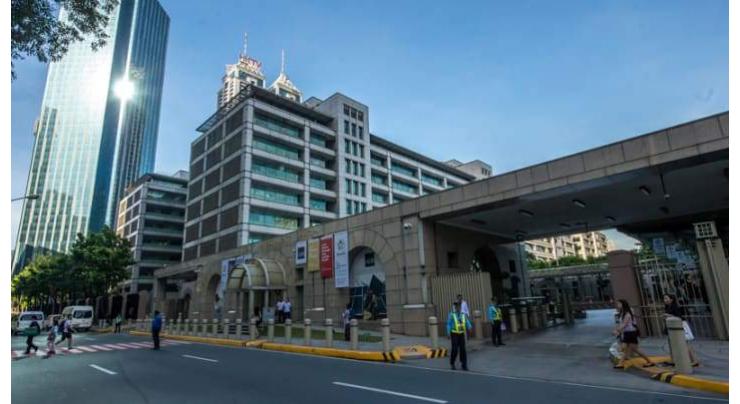
- Home
- Business
- News
- Coronvirus impact on national economy: ADP expects Pakistan’s GDP growth at 2.6 per cent
Coronvirus Impact On National Economy: ADP Expects Pakistan’s GDP Growth At 2.6 Per Cent
Fida Hussnain (@fidahassanain) Published April 03, 2020 | 03:04 PM

ADB says Inflation is projected to accelerate to 11.5% in FY2020, reflecting a sharp rise in food prices in the first part of the fiscal year and a 9.8% drop in the value of the local currency against the US dollar in the first 7 months of FY2020.
LAHORE: (UrduPoint/UrduPoint / Pakistan Point News-April 3rd, 2020) Asian Development Bank (ADB) on Friday reported that Pakistan’s GDP growth rate would shrink to 2.6% from 3.3% while inflation would remain around 11.5% for 2020.
Pakistan would witness double-digit inflation of approximately 11.5 per cent as compared to the previous year of 6.8 per cent.
“The food prices would high after scheduled hike of utility rates and depreciation of local currency,” the Asian Development Bank predicted in its latest report. It said: “Inflation is projected to accelerate to 11.5% in FY2020, reflecting a sharp rise in food prices in the first part of the fiscal year and a 9.8% drop in the value of the local Currency against the US Dollar in the first 7 months of FY2020,”.
It also pointed out that growth level in Pakistan would go slow because of agricultural stagnant besides the external upheavals. The ADB, however, said that intended correction of macroeconomic imbalances” in the country may restore confidence in the economy and bring later benefits. The GDP, it forecast, would rise up to 3.2 per cent in 2021. It further said that growth in some export oriented industries such as textile and leathers would be modest . But, large-scale manufacturing, which provided over half of industrial production, would likely to contract, as it did in the first half of FY2020.
ADB also stated that the current coronavirus outbreak would also pose an additional downside risk to growth prospects as it would further dampen consumer demand, exporters, businesses and industries.
The State Bank of Pakistan, the central bank, raised its policy interest rate by a cumulative 575 basis points to 12.
25% at the end of FY2019 to counter inflationary pressures. Following the decline in global oil prices and expected sluggish demand under COVID-19, the State Bank of Pakistan reduced it in two steps to 11.00% in March 2020.
However, the bank noted that inflation rate would come down to single-digit figures in 2021 to 8.3%, as the SBP would have to account for this in its next monetary policy decision to increase credit to the private sector and boost economic activity.
The current account deficit is expected to continue narrowing to 2.8% of the gross domestic product in FY2020 based on the reduction in trade deficit resulting from exchange rate depreciation and the imposition of regulatory duties to contain import demand, the ADB report noted.
The report noted that the present macroeconomic challenges facing Pakistan underscore the importance of further strengthening social protection, health, education systems, and providing much-needed relief to the most vulnerable families.
“Pakistan's strong and decisive policy measures began to yield positive results in reversing macroeconomic imbalances and narrowing current account deficits,” said ADB Country Director for Pakistan Xiaohong Yang.
He said that Pakistan's economy was in better shape than before but emphasised that the country needed to work together to tackle the new challenges posed by COVID-19 — including uncertain short-term growth prospects — and its related socio-economic repercussions.
“The government’s emergency relief package and extensive use of Ehsaas are important to counter the impacts of the pandemic, especially on the poor and vulnerable,” the country director added.
Related Topics
Recent Stories

Punjab CM inaugurates Pakistan’s first Virtual Women Police Station

Dutch model Donny Roelvink embraces Islam

Experts raise concerns over introduction of 10-stick packs

Iranian president arrives in Karachi

Law Minister expresses Govt's resolve to address issue of missing persons

Rizwan’s batting order may be changed: Sources

Nawaz Sharif to visit Guangzhou exhibition in China

FM Dar not traveling to China: Foreign Office

PM takes notice of deliberate delay in tax cases

Iranian President visits Allama Iqbal’s mausoleum

Iranian President arrives in Lahore today

Currency Rate In Pakistan - Dollar, Euro, Pound, Riyal Rates On 23 April 2024
More Stories From Business
-
Afghan trade delegation, FPCCI discuss bilateral trade
8 hours ago -
With knowledge economy, Mauritius is a stable economy: Envoy
9 hours ago -
Aurangzeb reiterates govt's resole to reduce poverty, promote sustainable development
10 hours ago -
Finance minister meets Chairman Anjuman-e-Tajran; discuss issues of business community
10 hours ago -
Govt ensuring digital access as fundamental right: Ahsan Iqbal
10 hours ago -
WHO delegation calls on Chairman FBR
10 hours ago
-
Bill drafted to regulate veterinary sciences and animal welfare: Tanveer
11 hours ago -
General Motors lifts 2024 profit forecast after strong Q1
11 hours ago -
Pakistan aims to reach $3 trillion economy by 2047: Ahsan Iqbal
12 hours ago -
Digital technologies play significant role in economic growth: Shaza
12 hours ago -

Experts raise concerns over introduction of 10-stick packs
12 hours ago -
SACM directs making technical institutes as skill imparting centres
13 hours ago






